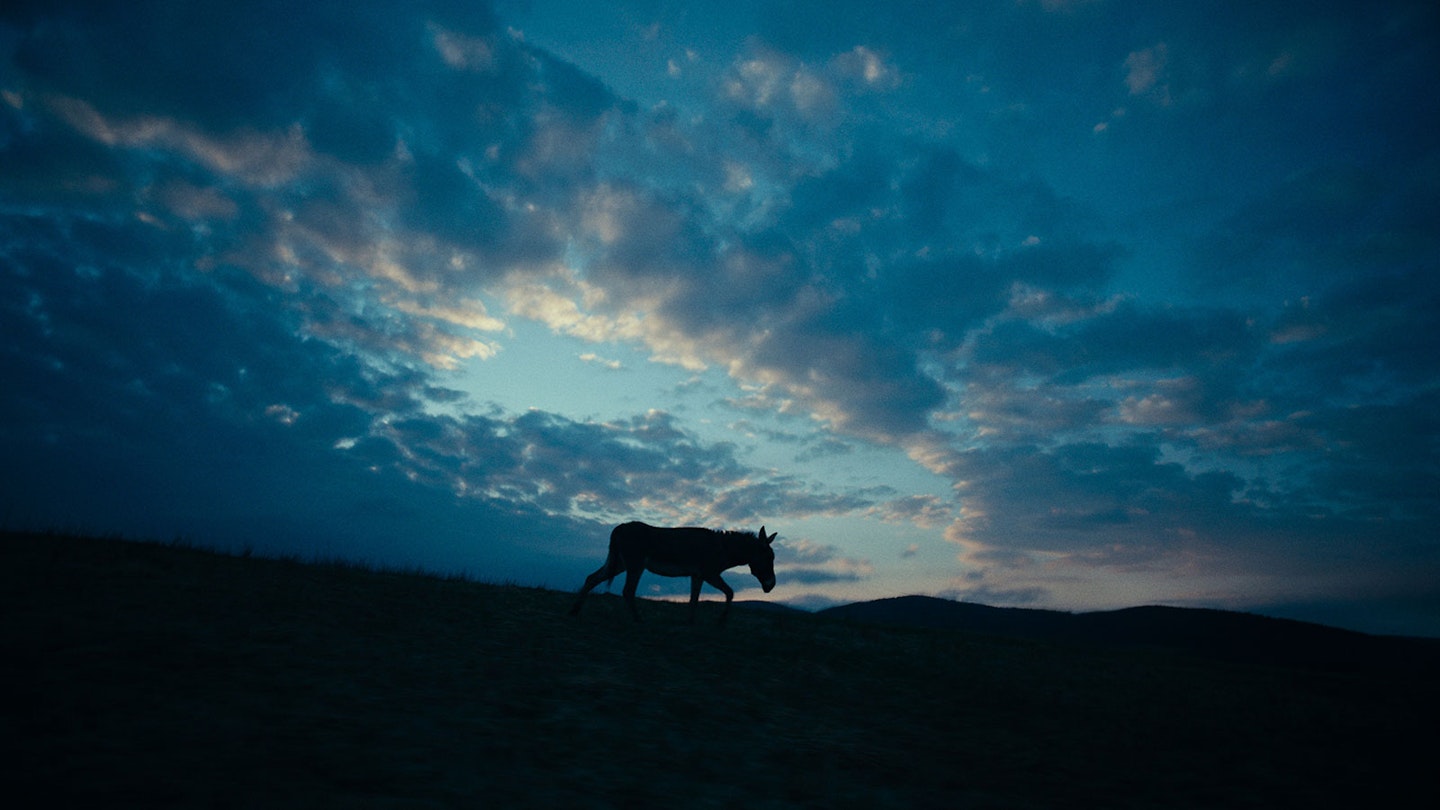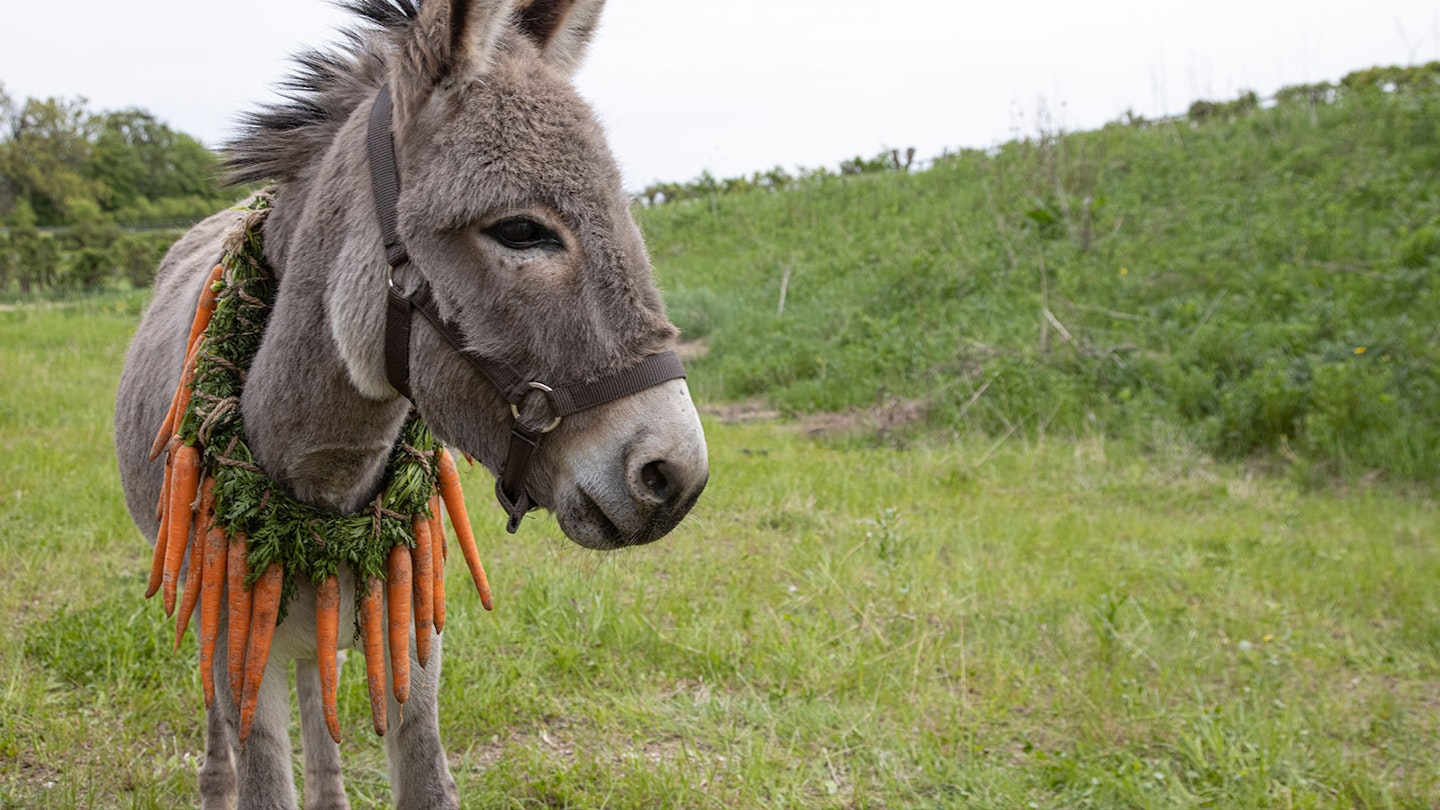Jerzy Skolimowski has never been the conventional sort. Having made his name as part of the Polish New Wave scene in the 1960s, he directed some arresting British dramas in the 1970s and ’80s, and in 2010 cast Vincent Gallo as, somehow, a Taliban fighter in survivalist thriller Essential Killing. Meanwhile, he’s dabbled in acting — one of his last gigs had him being headbutted by Scarlett Johansson’s Black Widow in 2012’s Avengers Assemble. He is predictably unpredictable, so it makes sense that his latest film is a trippy, 86-minute odyssey following a donkey across Poland. EO is very loosely inspired by Robert Bresson’s Au Hasard Balthazar, but concept aside, this is maximum Skolimowski. And maximum donkey.

Co-written with his wife Ewa Piaskowska, it introduces us to the gentle, docile EO (played by six donkey actors), whose road trip begins after a circus goes bust. This means he is separated from Kasandra (Sandra Drzymalska), the human circus-worker who adores him, and as he travels the land, his fortunes fluctuate. If this sounds like a cuddly Pixar film — well, no. Skolimowski is not one to shy away from harsh realities, and here we have random acts of violence. People die. Someone’s neck is sliced open. Animals are killed. And if you can’t stomach seeing a donkey having the shit kicked out of him from his POV, then this might not be the film for you.
In EO, life is beautiful, and majestic, and horrific and awful.
There’s a lot going on here. As well as such harshness, there’s mischievous humour, some of it deadpan, some of it slapstick, some of it involving a plate-smashing Isabelle Huppert (in the film’s oddest, most jarring sequence). Much of it is plain beautiful, Skolimowski in thrall to the natural world — and to his donkey. Cinematographer Michal Dymek provides tranquil, tender close-ups of EO, as well as some rather operatic imagery. A drone camera, presumably, swoops through a red-filtered forest. A Steadicam follows EO through a tunnel as he is besieged by bats. River-water is filmed like fractals. A dead bird, fallen from the sky, splats on a woodland floor. The awesome horror of life.
Accompanying all of this is Pawel Mykietyn’s score, treating EO profoundly, reverentially, epically. Terrifying strings soundtrack someone eating pasta. A garden gate opens and it feels like The Shining. Heavy metal segues into Beethoven. And sometimes, the music seems to lean into EO’s own state of mind. Skolimowski is not afraid to suggest that EO has emotions much as we do, giving him dream sequences, or at least memories of happier times with Kasandra. There is a spiritual quality to EO, and it’s strange and touching.
EO is dwarfed by the natural world, and by people. It feels like Skolimowski, aged 84, has had it with humans. Certainly those who aren’t nice to animals. In EO, life is beautiful, and majestic, and horrific and awful. Shit goes down, just because. On we go. Until we die.
